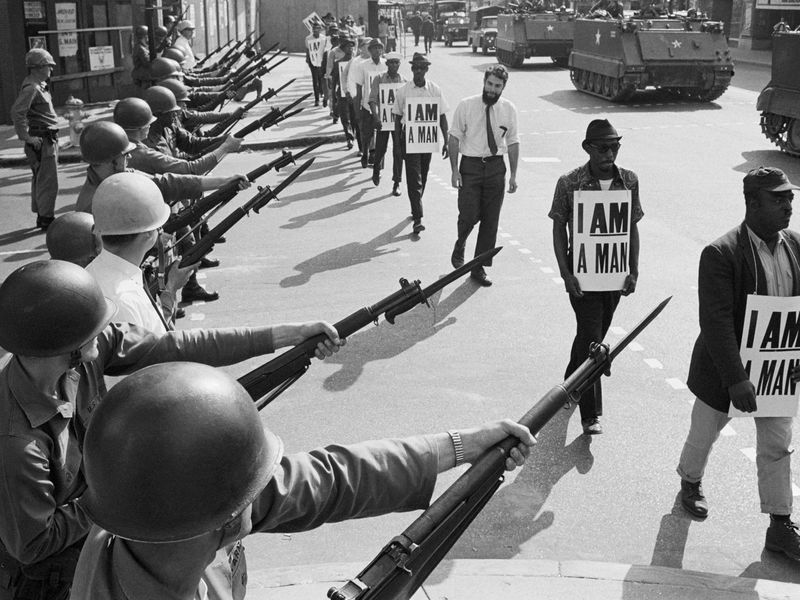Derrick Bell’s Parable Of Afrolantica
Introduction And Posts In This Series
Chapter 3 of Derrick Bell’s Faces At The Bottom Of The Well tells the parable of Afrolantica. Out in the Atlantic Ocean a new continent suddenly begins to emerge from the water 900 miles off the coast of South Carolina. Months later when it emerges from the boiling waters and steam that surrounded its birth, it is revealed as a land mass the size of the New England States, with mountains, forests, rivers, and meadows; with plants, animals, fish; and with a whole lot of gold and silver. Nations vie for control, but the US gets a head start and tries to put people there. They are immediately sickened by a strange heavy air pressure which they cannot breathe.
It turns out that only American Black people, and not even Black people from other nations, could breathe the air just fine. A group of Black explorers reported:
… they needed neither their space suits nor special breathing equipment. In fact, the party felt exhilarated and euphoric—feelings they explained upon their reluctant return … as unlike any alcohol- or drug-induced sensations of escape. Rather, it was an invigorating experience of heightened self-esteem, of liberation, of waking up. All four agreed that, while exploring what the media were now referring to as “Afrolantica,” they felt free.
Black people begin to think of Afrolantica as the Promised Land. One minister likened it to the story of the Israelites in the land of Egypt. The Israelites, emancipated from Egyptian slavery, wandered in the wilderness for 40 years. Black people lived this for hundreds of years. He urged Black people to emigrate to this Promised Land.
The arguments began. Some Black people, Remainers, argued that life in the US wasn’t as bad as the Israelite had it in their 40 years. They said Black people of today were better off than their parents and grandparents. This is our land, they said, and we don’t want to leave.
A pro-emigration group introduced a bill in Congress to give each emigrant $20K to cover expenses and start-up costs, to be repaid if the emigrant returned within 10 years. Opponents attacked it as unconstitutional because it created a race-based benefit without showing a compelling state interest as a justification.
The Remainers argued that things were definitely getting better and it would be dumb to leave just as the dream of equality was in sight. The pro-emigration people, Leavers, pointed out that the dream always favored white people, and was always hedged for Black people.
Each side quoted historical authorities. Leavers cited Abraham Lincoln who backed resettlement of freed Blacks throughout his life. Remainers cited Frederick Douglas who asserted that Black people belonged in America as much as any other immigrant.
Non-Black Americans were troubled by these events. Some saw the new confidence and pride of Blacks as arrogance or “uppity”. Racists were furious. Others were merely envious. Conservatives feared the possibility of another Cuba, a rallying point for third-world peoples who might identify more with Afrolanticans than US capitalists backed by US military and political pressure. The US government worked to undermine the Leavers, seeing them as a threat to world stability. Agents of the government tried to find Black leaders or academics to back up their conspiracy theories about this invented plot, but none were willing to sign on, which was surprising.
Meanwhile, Black people organized to leave. Even Blacks who didn’t want to go supported this movement with money and services. That frightened many white people. Governments and corporations set up barriers. Visas were denied. Threats were made of loss of citizenship. The right to return even to visit relatives. Criminal charges and civil litigation followed.
Black people banded together to fight off these attacks. A large flotilla left on July 4, in search of Black Independence.
But. As they neared Afrolantica, the mists rose, and the island began to sink back into the Atlantic. They watched it disappear. They realized they were not feeling grief or despair, but a deep satisfaction in having accomplished so much together. They spoke of the words of Frederick Douglass:
“We are Americans. We are not aliens. We are a component part of the nation. We have no disposition to renounce our nationality.”
This spirit inspired a huge number of Black people to renewed efforts to achieve their place in their America.
Discussion
1. The image of the pressure Black people feel in America just trying to live their lives, and the freedom they felt in Afrolantica is striking. It’s reflected in the coverage of the confirmation hearings for Judge Ketanji Brown Jackson. The hearings featured the New Racist Stylings of the Republican Party. Ted Cruz brought in posters of a baby playing with blocks to illustrate something he didn’t like about Critical Race Theory, and asked Judge Jackson whether babies are racists. Elie Mystal explains what happened next:
Jackson started to answer. She said, “Senator.” And then she sighed. And then she paused. For a long time. As the silence filled the room, I felt like I could see Jackson make the same calculation nearly every Black person and ancestor has made at some point while living in the New World. It’s the calculation enslaved people made before trying to escape to freedom, or activists made before sitting down at the white lunch counter. But it’s also the calculation a woman makes before responding to the e-mail of the failson who was just promoted ahead of her, or the calculation I make when a white executive comments on my Twitter feed but not my published columns. It’s the calculation when black people try to decide: “Am I gonna risk it all for this?”
This is what Jeneé Osterheldt, writing for the Boston Globe, saw:
Black women are familiar with the weight of white supremacy even when it cloaks itself in a polite veneer.
The GOP repeatedly has said Jackson’s Supreme Court confirmation hearings are to be fair and respectful. They tell her how “intelligent” and “articulate” she is, affirming how proud Jackson should be as they look for ways to lay pressure on her in hopes of making her chin reach her neck in shame.
Black people in, say. Kenya don’t feel the pressure Mystal and Osterheldt describe, pressure not mentioned in other coverage. That’s just for American Black people.
2. As with any parable, we have to ignore the parts that don’t match up well with reality. (Do not get me started on the Parable of the Prodigal Son.) Bell ignores the practical difficulties of living in a land with no electricity or other form of power, the problems of capitalism generally and many others not central to his concerns. We should ignore them too if we want to learn anything useful.
Taking the parable at face value, we see one of Bell’s central concerns. He believes that racism is so deeply entrenched in US society that it can not be eradicated. Black people will only make progress by working together. As I noted in my introduction to this series, he believe that the effort has to be the goal, it has to be its own satisfaction and justification.
3. As with any good parable, there are layers of meaning, and different lessons for different people. We might ask White people how they would react to the situation. I’m not at all sure how I’d react.
My first thought was that it would be great for the people who wanted to go, and I’d be delighted to help. Then I thought that I’d feel terrible that so many Black people would want to go. I’d take it too personally, as them saying I have failed to treat them right, even if #NotAllWhitePeople. But that gets really complicated. It isn’t just my fault, and I don’t know what I personally could or should have done differently. How do we even allocate fault in the situations we are born into, and only escape with the help of others? Communities of every nationality and race in our country are dysfunctional. I would gladly support any plausible effort to fix them as best I can, but I have no ideas about what to do.
Maybe Bell is asking us to think about how we get people to work together to solve common problems. Isn’t that what’s supposed to happen in a real Democracy?


